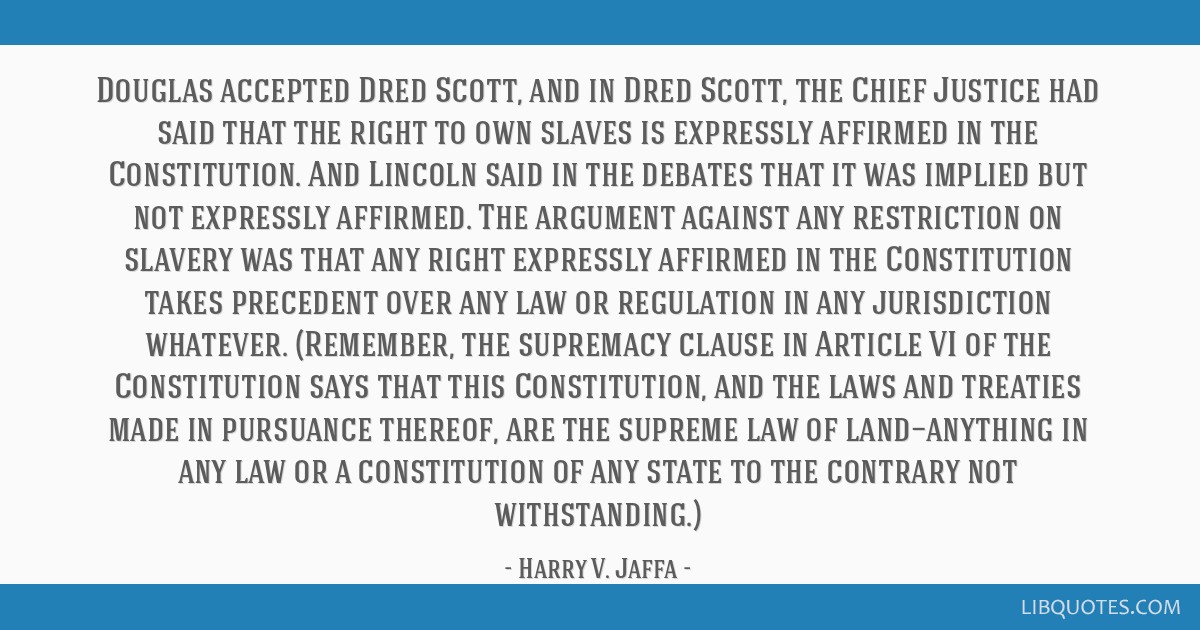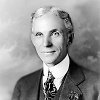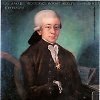Douglas accepted Dred Scott, and in Dred Scott, the Chief Justice had said that the right to own slaves is expressly affirmed in the Constitution. And Lincoln said in the debates that it was implied but not expressly affirmed. The argument against any restriction on slavery was that any right expressly affirmed in the Constitution takes precedent over any law or regulation in any jurisdiction whatever. (Remember, the supremacy clause in Article VI of the Constitution says that this Constitution, and the laws and treaties made in pursuance thereof, are the supreme law of land—anything in any law or a constitution of any state to the contrary not withstanding.)
The Real Abraham Lincoln: A Debate (2002)























